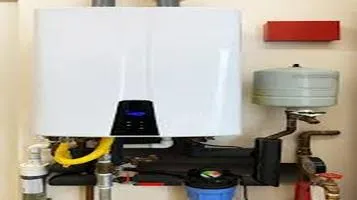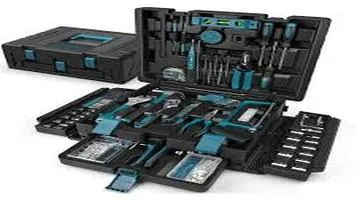Tankless Water Heaters
Tankless water heaters, also known as on-demand water heaters, offer an energy-efficient alternative to traditional tank-based models. Unlike conventional systems that continuously heat and store water, tankless units heat water only when needed, resulting in significant energy savings. These compact devices can be mounted on walls, freeing up valuable space in homes. They provide a continuous supply of hot water, making them ideal for households with varying usage patterns. With a lifespan typically longer than traditional models, tankless heaters require less maintenance and reduce the risk of leaks. However, the initial installation cost can be higher, and their efficiency may depend on the local climate and household size. Overall, tankless water heaters offer a modern, efficient solution for modern water heating needs.

Introduction
In the quest for energy efficiency and continuous hot water supply, tankless water heaters have emerged as a compelling alternative to traditional storage water heaters. These on-demand systems promise numerous advantages, including reduced energy bills and endless hot water, but they also come with their own set of challenges. This review delves into the features, benefits, and potential drawbacks of tankless water heaters, providing a comprehensive evaluation to help you decide if this technology is right for your home or business.
How Tankless Water Heaters Work
Unlike traditional water heaters that store a large volume of water in a tank, tankless water heaters, also known as on-demand or instantaneous water heaters, heat water only when it is needed. When you turn on a hot water tap, cold water travels through a pipe into the unit, where either a gas burner or an electric element heats the water. As a result, tankless water heaters can deliver a constant supply of hot water without the limitations of a fixed storage capacity.
Key Benefits
1. Energy Efficiency
One of the primary benefits of tankless water heaters is their energy efficiency. Because they only heat water as needed, they eliminate the standby heat losses associated with traditional storage water heaters. According to the U.S. Department of Energy, tankless water heaters can be 24-34% more energy-efficient for homes that use 41 gallons or less of hot water daily. For homes that use more, they can still achieve energy savings of 8-14%.
2. Continuous Hot Water
Traditional water heaters can run out of hot water during periods of high demand, such as back-to-back showers. In contrast, tankless water heaters provide a continuous supply of hot water, making them ideal for large families or households with high hot water needs.
3. Space Savings
Tankless water heaters are compact and can be mounted on walls, freeing up valuable floor space. This makes them particularly suitable for smaller homes, apartments, or any setting where space is at a premium.
4. Longer Lifespan
Tankless water heaters generally have a longer lifespan compared to traditional storage heaters. While a conventional water heater may last 10-15 years, a tankless model can last up to 20 years or more with proper maintenance.
Potential Drawbacks
1. Higher Initial Cost
One of the most significant disadvantages of tankless water heaters is the higher upfront cost. The units themselves are more expensive than traditional models, and installation can be more complex and costly, particularly if modifications to your home's electrical system or gas piping are required.
2. Limited Flow Rate
Although tankless water heaters can provide continuous hot water, their flow rate may be limited. This means they may struggle to supply enough hot water for simultaneous, multiple uses, such as running a dishwasher and taking a shower at the same time. To mitigate this, some homes may require multiple units.
3. Maintenance Requirements
While tankless water heaters have a longer lifespan, they do require regular maintenance to operate efficiently. This includes descaling the system to prevent mineral buildup, which can affect performance and longevity.
4. Power Outages
In the event of a power outage, even gas-powered tankless water heaters will cease to function because they rely on electronic ignition systems. This is a consideration for those living in areas prone to frequent power interruptions.
Installation Considerations
Installing a tankless water heater is not a simple "plug-and-play" process. It often requires professional installation, which can add to the overall cost. For gas-powered models, proper venting is crucial to ensure safe operation. Additionally, the existing gas line may need to be upgraded to accommodate the higher gas demand of the tankless unit. For electric models, an electrical system upgrade may be necessary to handle the increased load.
Environmental Impact
Tankless water heaters are generally more environmentally friendly due to their higher energy efficiency and longer lifespan. Reduced energy consumption translates to lower greenhouse gas emissions, particularly if your home is powered by fossil fuels. Additionally, the longer lifespan means fewer units end up in landfills over time.
Conclusion
Tankless water heaters offer numerous advantages, including energy efficiency, continuous hot water, space savings, and a longer lifespan. However, these benefits come with higher upfront costs, potential flow rate limitations, and specific maintenance requirements. For households with high hot water demand or limited space, the investment in a tankless system can be worthwhile. However, it's essential to consider the initial costs and installation complexities.
Ultimately, the decision to switch to a tankless water heater should be based on an assessment of your specific needs, budget, and long-term goals. Consulting with a professional installer can also provide valuable insights and help you make an informed choice.






